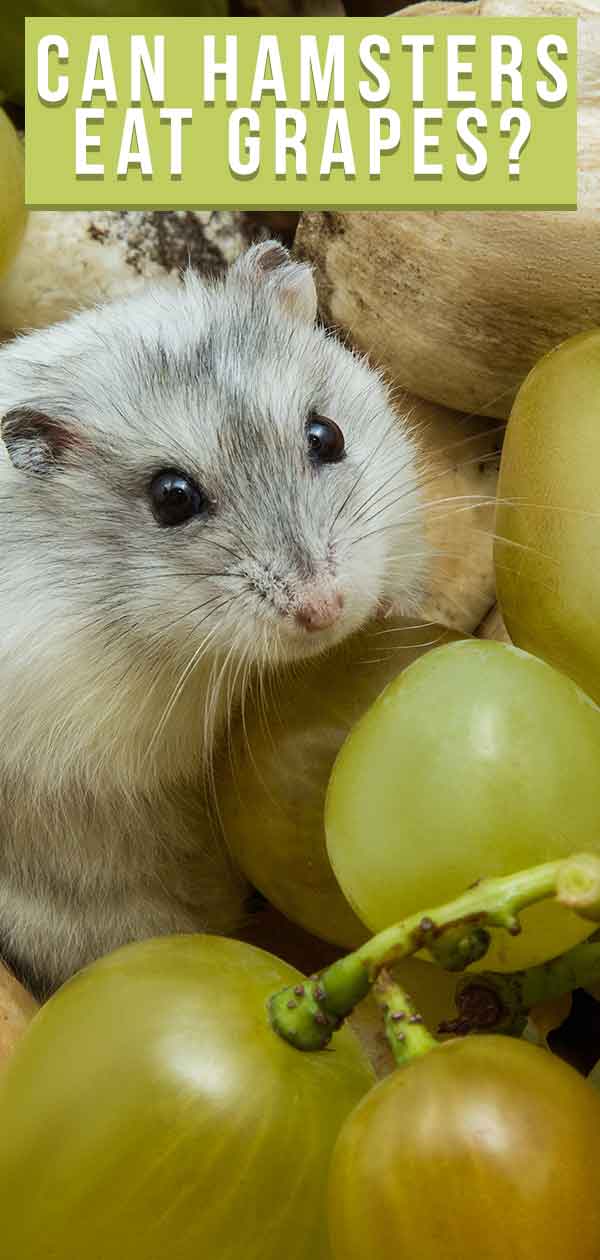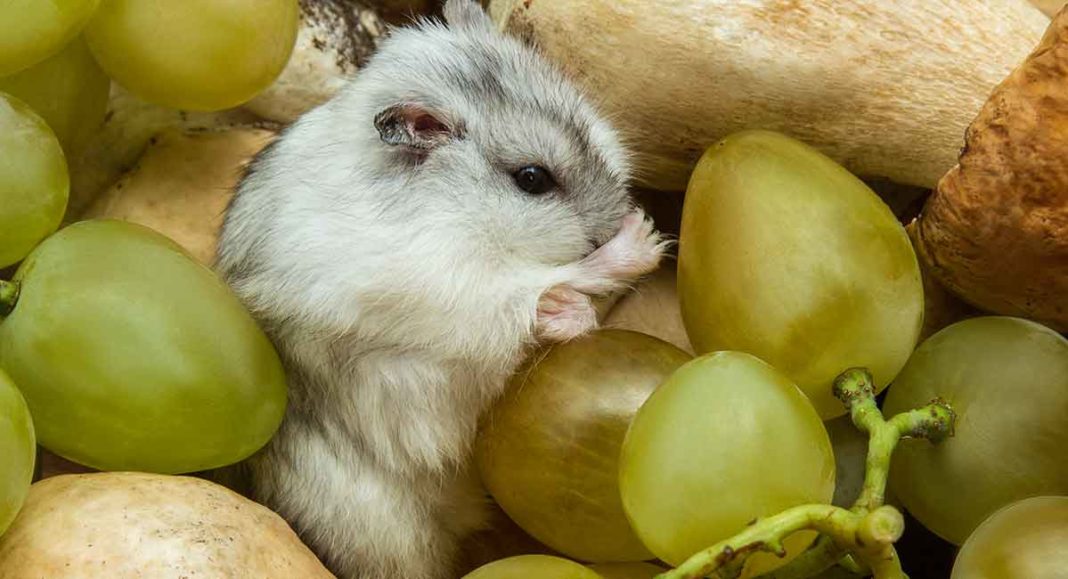Can Hamsters Eat Grapes: A Complete Guide to Hamster Nutrition
Introduction
Hamsters are adorable little creatures that make great pets. As a responsible pet owner, it’s important to provide them with a balanced and nutritious diet. One common question that arises is whether hamsters can eat grapes. In this article, we will explore the topic in detail and provide you with all the information you need to know about feeding grapes to your furry friend.

Can Hamsters Eat Grapes?
Yes, hamsters can eat grapes, but it’s important to understand the dos and don’ts before including them in their diet. Grapes are a delicious and juicy fruit that many humans enjoy, but it’s essential to consider the nutritional needs of hamsters and the potential risks associated with feeding them grapes.
The Nutritional Value of Grapes for Hamsters
Grapes are packed with essential nutrients that can benefit your hamster’s health. They are a good source of vitamins C and K, as well as antioxidants that help boost the immune system. Grapes also contain fiber, which aids in digestion and promotes a healthy gut.
Benefits of Feeding Grapes to Hamsters
Including grapes in your hamster’s diet can have several benefits. The high water content in grapes helps keep your hamster hydrated. The antioxidants present in grapes can also contribute to overall well-being and reduce the risk of certain diseases. Additionally, the natural sugars in grapes provide a quick energy boost for your furry friend.
Risks and Precautions
While grapes can be a healthy addition to your hamster’s diet, there are a few risks and precautions to keep in mind:
-
Choking Hazard: Grapes have small seeds and can pose a choking hazard to hamsters. It’s crucial to remove the seeds and cut the grapes into small, bite-sized pieces before feeding them to your pet.
-
High Sugar Content: Grapes contain natural sugars, which can be harmful if consumed in excess. Limit the amount of grapes you feed your hamster to prevent obesity and other health issues.
-
Digestive Issues: Some hamsters may have sensitive stomachs and may experience digestive issues after consuming grapes. Monitor your pet closely after introducing grapes into their diet and consult a veterinarian if you notice any adverse reactions.
How to Feed Grapes to Your Hamster
To safely feed grapes to your hamster, follow these guidelines:
-
Wash the grapes thoroughly to remove any pesticides or dirt.
-
Remove the seeds and cut the grapes into small, bite-sized pieces.
-
Offer a small portion of grapes as a treat, alongside their regular diet.
-
Observe your hamster’s reaction and adjust the quantity accordingly.
Remember, moderation is key when it comes to feeding grapes to your hamster. Treats should only make up a small portion of their overall diet.
Conclusion
In conclusion, hamsters can eat grapes, but it’s important to exercise caution and moderation. Grapes can provide nutritional benefits to your furry friend, but they should be given in small, seedless, and cut-up portions. Always monitor your hamster’s reaction and consult a veterinarian if you have any concerns.
FAQs
1. Can hamsters eat grape seeds?
No, hamsters should not eat grape seeds as they can pose a choking hazard. It’s important to remove the seeds before feeding grapes to your hamster.
2. How often can I feed grapes to my hamster?
Grapes should be given as an occasional treat and not as a regular part of your hamster’s diet. Offer small portions once or twice a week.
3. Are there any other fruits that hamsters can eat?
Yes, hamsters can enjoy a variety of fruits such as apples, bananas, and strawberries. However, always introduce new foods gradually and in small quantities to avoid digestive issues.
4. Can grapes be harmful to hamsters?
While grapes can be a healthy treat for hamsters, they should be given in moderation. Excessive consumption of grapes can lead to obesity and other health problems.
5. What should I do if my hamster shows signs of discomfort after eating grapes?
If your hamster experiences any digestive issues or discomfort after consuming grapes, it’s best to consult a veterinarian for proper guidance and advice.

